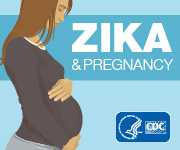Podcasts and Video
Podcasts
Have a Healthy Pregnancy
In this podcast, Dr. Cara Mai discusses steps one can take to have a healthy baby.

Cup of Health (4:34) (long version)

Minute of Health (0:59) (short version)
Beating Birth Defects
In this podcast, Dr. Stuart Shapira discusses risk factors for birth defects and ways to reduce the risk.

Cup of Health (7:10) (long version)

Minute of Health (0:59) (short version)
HHS HealthBeat: Beating Birth Defects
http://www.hhs.gov/news/healthbeat/2013/02/20130222a.html
Healthy Little Hearts
This podcast discusses maternal risk factors for having a baby with a heart defect and simple precautions women can take before and during pregnancy to decrease their chance of having a baby with a heart defect.
Minute of Health (7:22) (long version)
Cup of Health (0:59) (short version)
Keeping Little Hearts Healthy
This podcast discuses congenital heart defects and ways to prevent them in newborns.
Listen To This Podcast (6:00) (long version)
Listen To This Podcast (1:00) (short version)
Good Medicine Can Be Bad for Baby
This podcast discusses why women should consult with a health care provider about the risk for using particular medications during pregnancy.
Listen To This Podcast (5:21) (long version)
Listen To This Podcast (0:59) (short version)
If You’re Pregnant, Don’t Smoke
This podcast describes the dangers of smoking during pregnancy for the woman and her unborn baby, and offers information about how to get help to quit smoking for good.
Put Down That Drink if You Are Pregnant (or Trying to Be)!
This podcast discusses the danger of drinking alcohol during pregnancy.
Ten Tips to Prevent Infections During Pregnancy
This podcast gives 10 tips for preventing infections during pregnancy.
Folic Acid: Helping to Ensure a Healthy Pregnancy
Women should take 400 micrograms of folic acid every day before and during early pregnancy to help prevent certain birth defects.
You CAN Help Prevent Birth Defects (A Minute of Health with CDC)
To reduce the risk for neural tube defects (NTDs) such as spina bifida or anencephaly, women of reproductive age should consume at least 400 micrograms of synthetic folic acid daily by eating one serving of fortified breakfast cereal or taking a supplement. In addition, women should eat foods rich in naturally occurring folate such as orange juice, strawberries, cantaloupe, asparagus, broccoli, cooked dry peas and beans, and dark green, leafy vegetables.![]() Listen To This Podcast (0:59) (short version)
Listen To This Podcast (0:59) (short version)![]() Listen To This Podcast (6:10) (long version)
Listen To This Podcast (6:10) (long version)
Videos
National Birth Defects Prevention Study Video
Learn about the NBDPS from families who have been affected by birth defects, researchers, and doctors.
- Page last reviewed: May 15, 2017
- Page last updated: May 18, 2017
- Content source:



 ShareCompartir
ShareCompartir